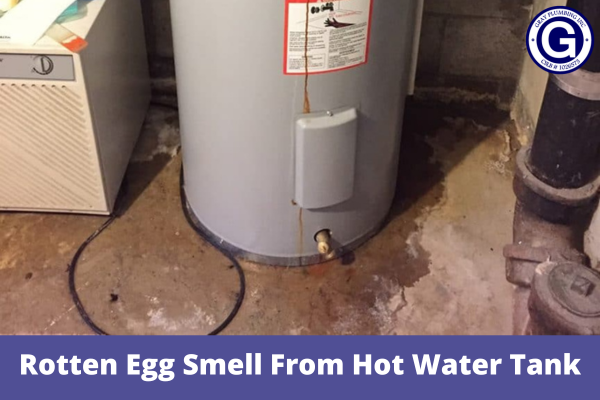Nothing is more unpleasant than turning on the hot water faucet and being met by a terrible odor resembling hot water smells like rotten eggs. If you’ve ever smelled something awful, don’t worry; you’re not alone. This odor is frequently caused by a chemical reaction involving sulfur bacteria in your hot water tank. In this blog post, we will look at the sources of the rotten egg smell, its potential health consequences, and, most importantly, how to get rid of it.
Understanding the Rotten Egg Smell
A rotten egg odor is a dead giveaway that hydrogen sulfide gas is present in your hot water system. Sulfate-reducing bacteria that flourish in the warm atmosphere of your hot water tank produce hydrogen sulfide. While these bacteria are not dangerous to human health, the odor can be unpleasant.
What Causes Smelly Hot Water?
Sacrificial anode rods are put in many hot water tanks to avoid rusting. These rods, commonly constructed of aluminum or magnesium, can combine with sulfur bacteria to generate hydrogen sulfide gas.
Bacteria may enter the hot water tank in some situations due to a lack of regular maintenance. As a consequence of feeding on sulfates in the water, the bacteria produce hydrogen sulfide gas.
H2: How Do I Remove the Smell of Rotten Eggs From My Hot Water Heater?
Here are some things you can do to eliminate the odor:
Flushing The Tank
First, cleanse your hot water tank to eliminate sediment or accumulation. Turn off the tank’s power or gas supply, close the water supply valve, and connect a hose to the drain valve. Open a hot water faucet in your home and drain the tank. Repeat the procedure several times to ensure thorough flushing.
Replacing The Anode Rod
The anode rod must be replaced if the smell lingers after flushing the tank. Follow the manufacturer’s instructions to find the anode rod and replace it with an aluminum/zinc alloy rod less prone to bacterial response.
Shock Chlorination
Shock chlorination may be required when bacteria have spread throughout the plumbing system. To kill the microorganisms, chlorine is introduced into the system. This technique should be carried out with the assistance of a professional plumber.
Preventive Measures
Consider the following preventive actions to avoid a recurrence of the rotten egg smell:
Regular Maintenance
Schedule regular hot water tank maintenance, including flushing and anode rod inspection.
Temperature Adjustment
Bacterial growth can be inhibited by lowering the temperature of the hot water tank to less than 140°F (60°C).
Water Treatment
Installing a water treatment system, such as a water softener or activated carbon filter, can aid in the removal of sulfates and other pollutants from the water, hence reducing bacterial growth.
What’s Next?
At Gray Plumbing, we understand the frustration of dealing with a rotten egg stench from your hot water tank. We can rapidly remove the odor and restore your hot water to its clean and fresh state with our dependable services. We also provide preventive measures, such as temperature adjustments and water purification solutions, to ensure the issue does not reoccur. Don’t let the stench of rotten eggs ruin your hot water pleasure; call us now!



